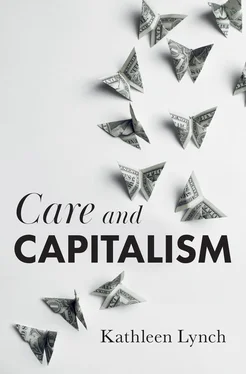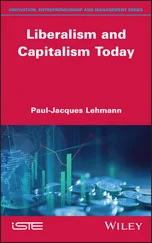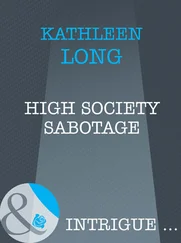1 ...6 7 8 10 11 12 ...21
Ontological impediments to recognizing affective relations
As sociable beings do not exist prior to their relatings (Mead 1934; Haraway 2003: 6), caring and relating share ontological roots (Puig de la Bellacasa 2017: 69). As relatings inevitability create interdependencies (Puig de la Bellacasa 2017: 72), and at times dependencies, care is a necessity, not an optional extra for human survival (Tronto 1993; Collins 2015). Without care, in all its forms, people would not survive, given the high dependency of humans at birth and at times of vulnerability (Kittay 1999; Fineman 2004). 1To develop a sense of affirmation and recognition as an individual person of value and worth, love is also necessary. It is through love that the individual can grow and gain confidence in her/himself as an incarnated individual capable of feeling emotions (Honneth 1995, 2003). While caring, and especially loving, can be individualistic or dyadic in character, caring is not necessarily individualistic. Caring about the needs of unknown others is foundational to public welfare and to the principle of solidarity; it is a moral and benevolent motivation to alleviate or prevent the suffering of others (Rorty 1989; Halldenius 1998; Arnsperger and Varoufakis 2003).
Despite these care realities, there are doxa-like 2ontological assumptions within the social sciences that frame the subjects of sociological and political analysis individually rather than relationally. This has profound implications for the understanding of the politics, economics and culture of social life and social change (Archer 2000). The scope, meaning and normative dimensions of social actions are framed differently depending on whether an individual or relational ontological frame is employed (Mooney 2014: 36–8).
The first ontological impediment is the resistance to recognizing the vulnerability of the human condition. There appears to be a refusal to acknowledge that all humans are subject to events, and to the power and influence of other persons, over which they lack control, regardless of their ‘virtue or rational will’ (Nussbaum 1995a: 366). While dependency may be contingent and episodic, vulnerability is a constant feature of the human condition (Fineman 2008), making even the most autonomous and independent person liable to harm, not least because of the vulnerability of the human body (Vaittinen 2015; Engster 2019).
The scope, intensity and persistence of the non-recognition of vulnerability and inter/dependency has been documented by feminist scholars across many disciplines, (Gilligan 1982; Benhabib 1992; Tronto 1993; Sevenhuijsen 1998; Kittay 1999; hooks 2000; Fineman 2004, 2008; Held 2006; Ferguson 2014). Their work shows how care and love are both endemic to human relationality and have liberatory potential, not least because they generate a motive and desire for justice (Collins 1990: 197) and give people the strength to oppose domination (hooks 2000: 104). Love and care energize and motivate people to act other-wise rather than self-wise, both personally and politically (Boltanski and Porter 2012). However, this scholarship is corralled as ‘feminist’, outside the mainstream. It is often ignored by male scholars (Hawkesworth 2006), including those writing about the significance of affective relations in politics (Hardt and Negri 2005).
A second impediment arises from the disrespect for how central emotions are to social and political life, and particularly the emotional work involved in producing human beings through nurturing. The concept of rationality that dominates much of public life, namely economic utilitarianism, defines people as ‘rational maximizers of satisfactions’ and presumes that emotions are distinct from rationality (Posner 1997). Yet reason and value are not polarized concepts analytically (Vandenberghe 2017), something economists (Kahneman 2003; Loewenstein 2010), sociologists (Barbalet, 2002) and political theorists recognize (Nussbaum 2001), while contemporary neuroscience demonstrates how the neural mechanisms for reason and emotion are not entirely separate in the human brain: feelings aid reasoning rather than being its antithesis (Damasio 1994). Furthermore, empirically established facts can be both empirically true and normatively and emotionally engaged (Sayer 2011: 36–41). Failing to recognize the link between reason and emotion has contributed to an incomplete and even alienated view of social life (Sayer 2017: 474), including an appreciation of how emotions matter in politics (Ahmed 2004).
A third impediment arises from the presumption of self-sufficiency as an ideal human state. Western political theorists have idealized independence as a sign of maturity and growth, placing a premium on a human condition that is never fully realizable (Kittay 1999; England 2005). The presumption of independence mutates from an analytical presumption into an ethic of good social practice; what is presumed to be typical becomes desirable. In so far as it downgrades relationality, this type of political thinking has glorified a concept of the person that is potentially unethical: it is assumed that to be detached, and accountable primarily to the separated self, represents the ideal form of self-realization.
The fourth impediment to recognizing the significance of affective relations arises from the way principles of value neutrality have exercised axiological standing in social scientific analysis generally, and in sociology in particular (Sayer 2017; Vandenberghe 2018). While maintaining the separation between fact and value is vital to avoid representing a priori assumptions and values as empirically valid ‘facts’, the dichotomy also presents unique problems for research because the analytical distinction between fact and value is a false binary in sociological terms, not least because facts are ‘entangled’ with values (Gorski 2017), and values, when transformed into subjective beliefs, are also factual realities (Fuchs 2017).
The failure to recognize the role of values as constituting social life, and not just regulating it (Vandenberghe 2018), has led to a situation where it is often assumed that social actors are maximizing utilitarians, leading to the analytical neglect of the other-centred normative social actions (Archer 2000; Sayer 2011). Indifference to others is taken as normal, leading to a wider political understanding of indifference as both ‘standard and appropriate’ (Held 2006: 83).
In sum, the failure to appreciate the role of nurturing work as a politically salient dimension in the production of social life, the resistance to recognizing the full vulnerability of the human condition, the lionizing of self-sufficiency as virtue, and the failure to appreciate the complex ways in which values, especially those arising from other-centredness, are not just regulatory but constitutive of social life comprise four ontological impediments to recognizing the importance of love, care and solidarity for the production of people in their relationality. The summation of these ontological influences has led to a failure to appreciate the significance of the relational self, thereby missing ‘a whole dimension of moral life’ (Kittay 1999: 51) that is central to research on social justice.
As the experience ‘of being needy 3is shared equally by all humans’ (Tronto 2013: 29), theories of justice must take cognizance of the endemic inter/dependency and vulnerability of the human condition. Relationality has both distributive and contributive implications for justice: the neediness and vulnerability of life make love, care and solidarity crucial for survival at the very least, and for a good life at best. Being deprived of these experiences individually and collectively is therefore a distributive injustice. Just as love is an important resource in human life (Gheaus 2017), so too are care and political solidarity. Those who receive all three of these forms of nourishing can flourish more than those who do not.
Читать дальше












